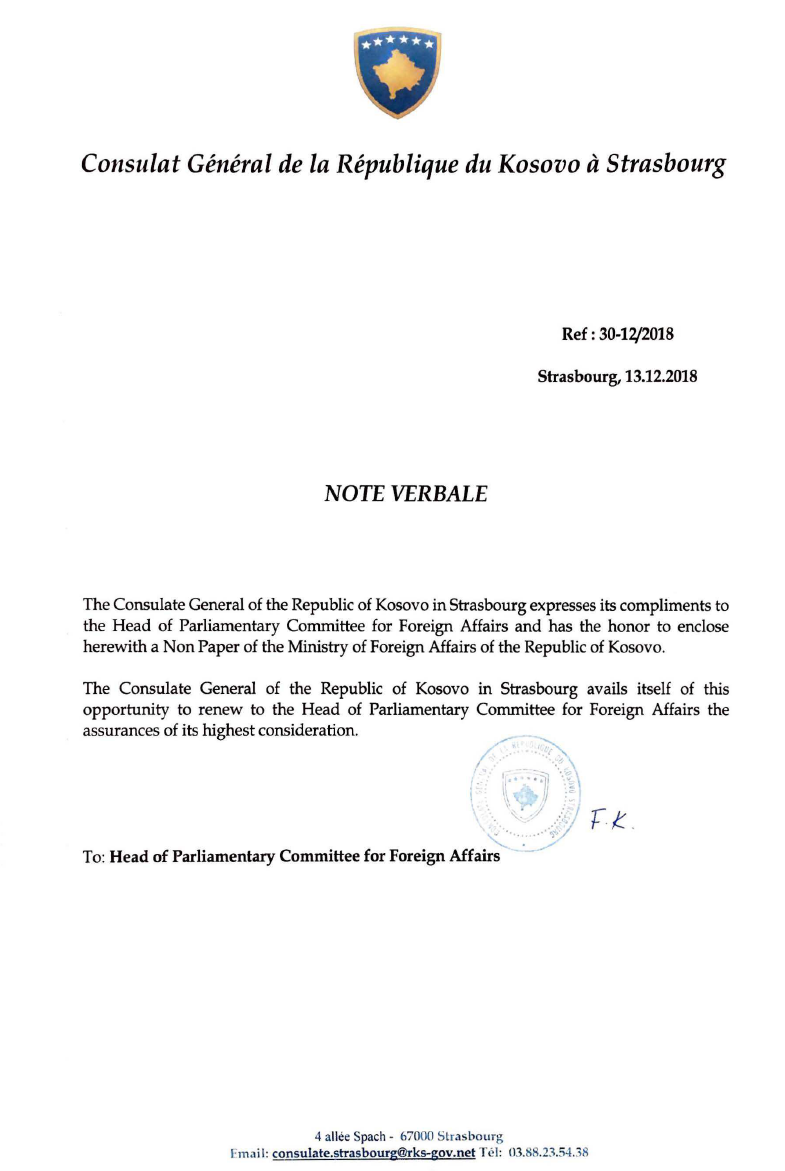
Consulat General de la Republique du Kosovo
a
Strasbourg
Ref: 30-12/2018
Strasbourg, 13.12.2018
NOTE VERBALE
The Consulate General of the Republic of Kosovo in Strasbourg expresses its compliments to
the Head of Parliamentary Committee for Foreign Affairs and has the honor to enclose
herewith a Non Paper of the Ministry of Foreign Affairs of the Republic of Kosovo.
The Consulate General of the Republic of Kosovo in Strasbourg avails itself of this
opportunity to renew to the Head of Parliamentary Committee for Foreign Affairs the
assurances of its highest consideration.
~.,.-
~
/
.
.','t/ "
. ',·• .:1:~
·
I
~-
I
....
<.~
:
.
.,,.
:"
.
..
,.
y.. .
' .
J
...
..
'--.
r-t. .
To:
Head of Parliamentary Committee for Foreign Affairs
-
4 allee Spach - 67000 Strasbourg
Fmail:
Tel:
03.88.23.5-1.38